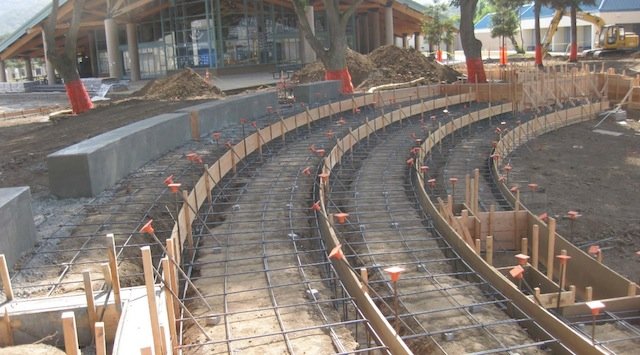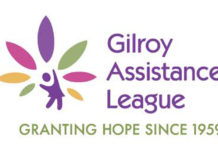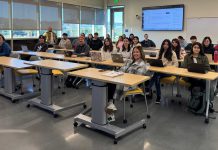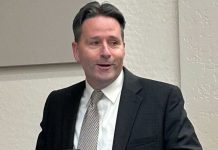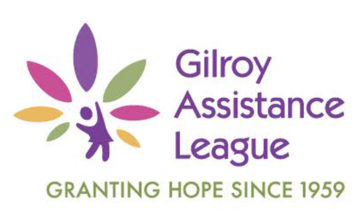The Gilroy Board of Education dusted itself off Thursday night and hammered out a revamped game plan after City Council “prematurely” shot down a proposed sales tax that would have generated up to $11.5 million annually for local schools.
With a possible $8.1 million cut in state funding looming on the horizon, school trustees will now focus on mobilizing and informing the community regarding the “state of emergency” GUSD will find itself in if Brown’s tax initiative gets stonewalled.
Pushing for a local city-school sales tax hasn’t fallen by the wayside, either. With three spots on City Council and the mayoral seat opening up this fall, “who knows how responsive City Council will be to the sales tax discussion down the road?” queried Superintendent Debbie Flores, during the board’s regular Thursday night meeting. “We may need to come back to them if the (Governor’s) tax initiative doesn’t pass in November.”
Touching on the pervasive disappointment lingering among school board members, who still exude undercurrents of frustration after City Council “short-circuited that whole process they agreed to” (council canceled a previously scheduled joint city-school meeting after voting against the sales tax in a special June 25 meeting), trustee Mark Good noted “I look forward to a new City Council.”
“Two of the four people who voted against the school district are not even running for election,” he said, referring to Councilmen Bob Dillon and Mayor Al Pinheiro. “We need to get involved as much as possible before November in our local politics and seek out people who are in support of keeping education a top priority in the city.”
Other trustees including Rhoda Bress underlined the school board’s responsibility to be “very detailed in the questions that we ask the (City Council) candidates about this issue.”
“I think that the people that we interview and ask questions for in the upcoming election, we should ensure that the people we support consider education a quality-of-life issue in Gilroy,” she said.
City Council candidates can more or less expect to be grilled on the local school funding crisis, as trustee Fred Tovar reiterated that the school board will want to know, “where do they stand?”
In the spirit of not “burn(ing) bridges,” however, trustee Jaime Rosso pointed out that GUSD’s last-ditch effort to get a joint city-school sales tax on the November ballot “was an 11th hour bid.”
Alluding to several of City Council’s concerns over possible legal issues associated with the general sales tax, “we need to continue addressing those issues that were raised,” Rosso pressed. “How can a city fund schools, and how can it be done? What is the process? We need good, solid answers to that and share those things and talk about how it can be done.”
As for the route of re-visiting a parcel tax – another revenue-generating option previously explored by the district – trustees aren’t gung-ho on funneling their time or resources into a measure that won’t raise nearly enough money to mitigate a possible $8.1 million cut to GUSD’s state funding.
A flat rate or variable rate parcel tax – which require a two-thirds vote and will yield an annual $1 million or $2 million respectively – do not require approval from City Council to be placed on the November ballot. The Board of Education has the ability to put a parcel tax before voters.
“Clearly our need is much more than can be sustained through a parcel tax,” said Bress. “To me, that would be a fall back position if every effort failed to have a sales tax.”
In conclusion, trustees resolved to continue addressing City Council’s concerns over the joint city-school sales tax, such as how the money would be legally transferred to the school district from city coffers. In parallel, a newly formed subcommittee of trustees will draw up a blueprint plan for establishing a uniform front and reaching out/educating the community.
“We need to consider everything,” said Flores. “We’ve made it really clear that we’re just not going to sit back and let the state do this to us without pursuing every option available to us locally to raise the money that we need to provide the quality programs that we need for our students.”
QUOTE WORTHY
“We realized that the old floor looked like a Ruffles potato chip.”
– GUSD Facilities Director James Bombacci, on the old, uneven floor of the Gilroy High School gym. A new floor is being installed.
“Legislators are insane. They’re increasingly out of touch with reality…the state is going to do nothing to help us. We can’t count on them.”
–GUSD trustee Mark Good, during the school board’s discussion on the education budget crisis
“Our children are our future. For what this district has done as a whole, it would be a shame for us to lose any more schools days.”
–GUSD trustee Fred Tovar, on having to cut more instructional school days due to the state budget crisis
-Previously at risk of losing its state funding next year, Transitional Kindergarten, Home-to-school transportation and special education transportation will be maintained through state funding next year. The district is currently down to six bus routes.
-If voters don’t pass Gov. Jerry Brown’s temporary tax initiative in November, GUSD will lose $8.1 million in state funding in the 2012-2013 school year. There will be a midyear trigger reduction of $475 per average daily attending student (ADA), which equates to $4.86 million for GUSD.


